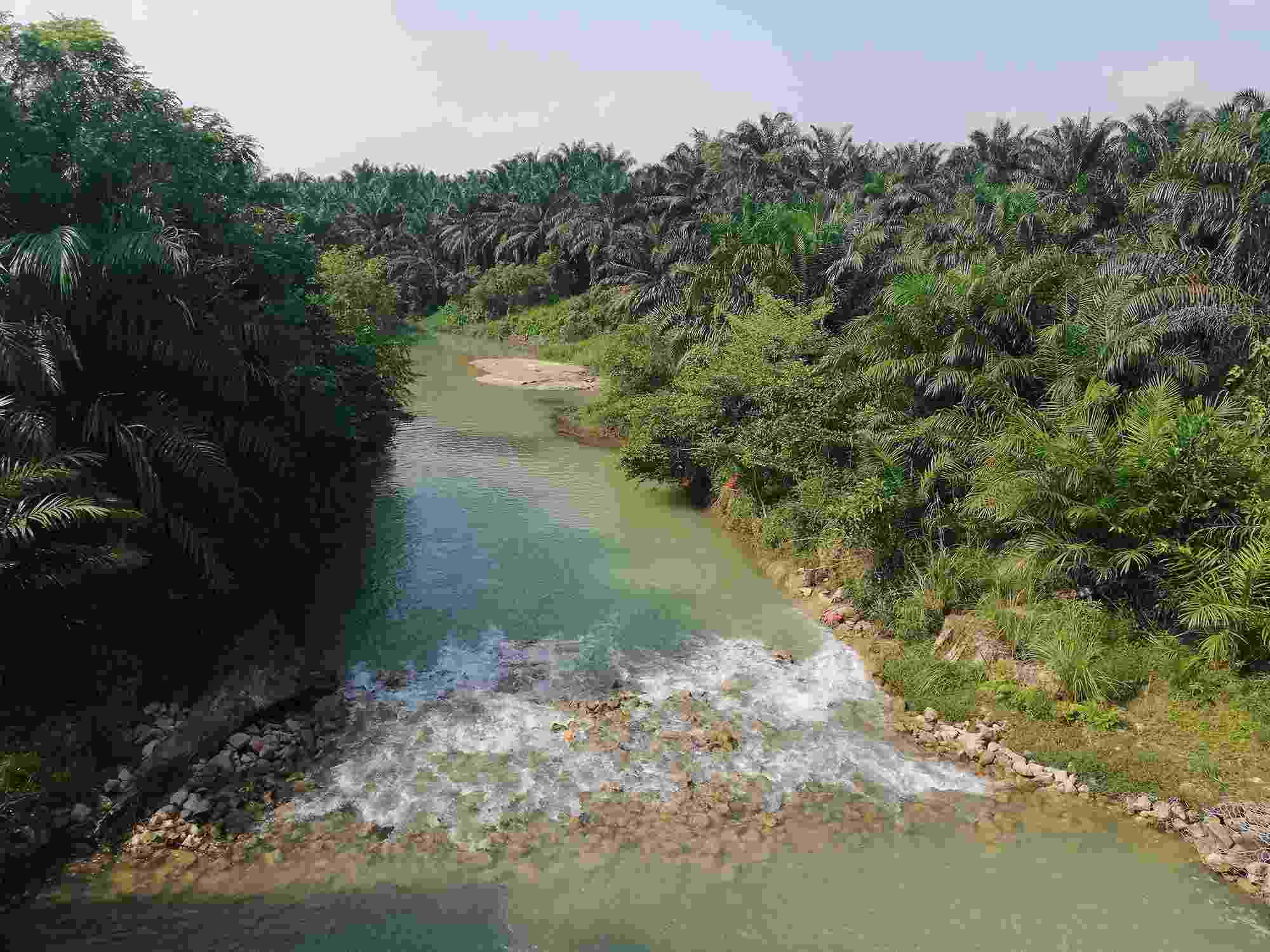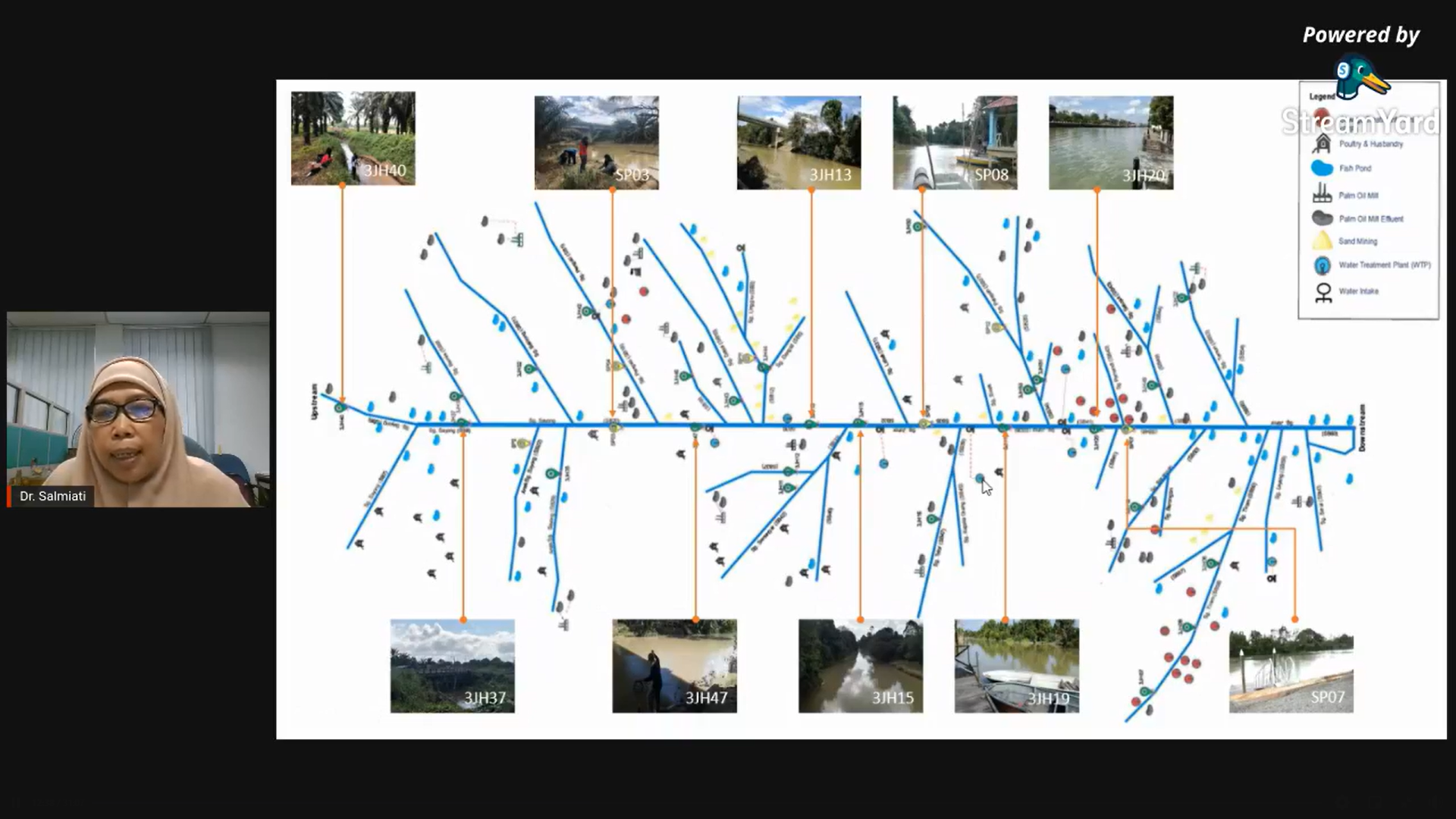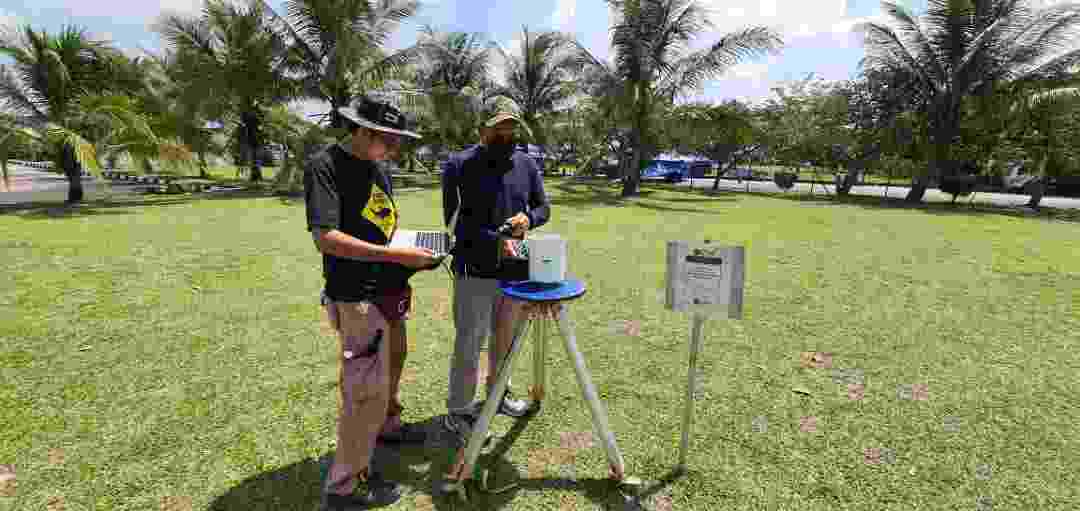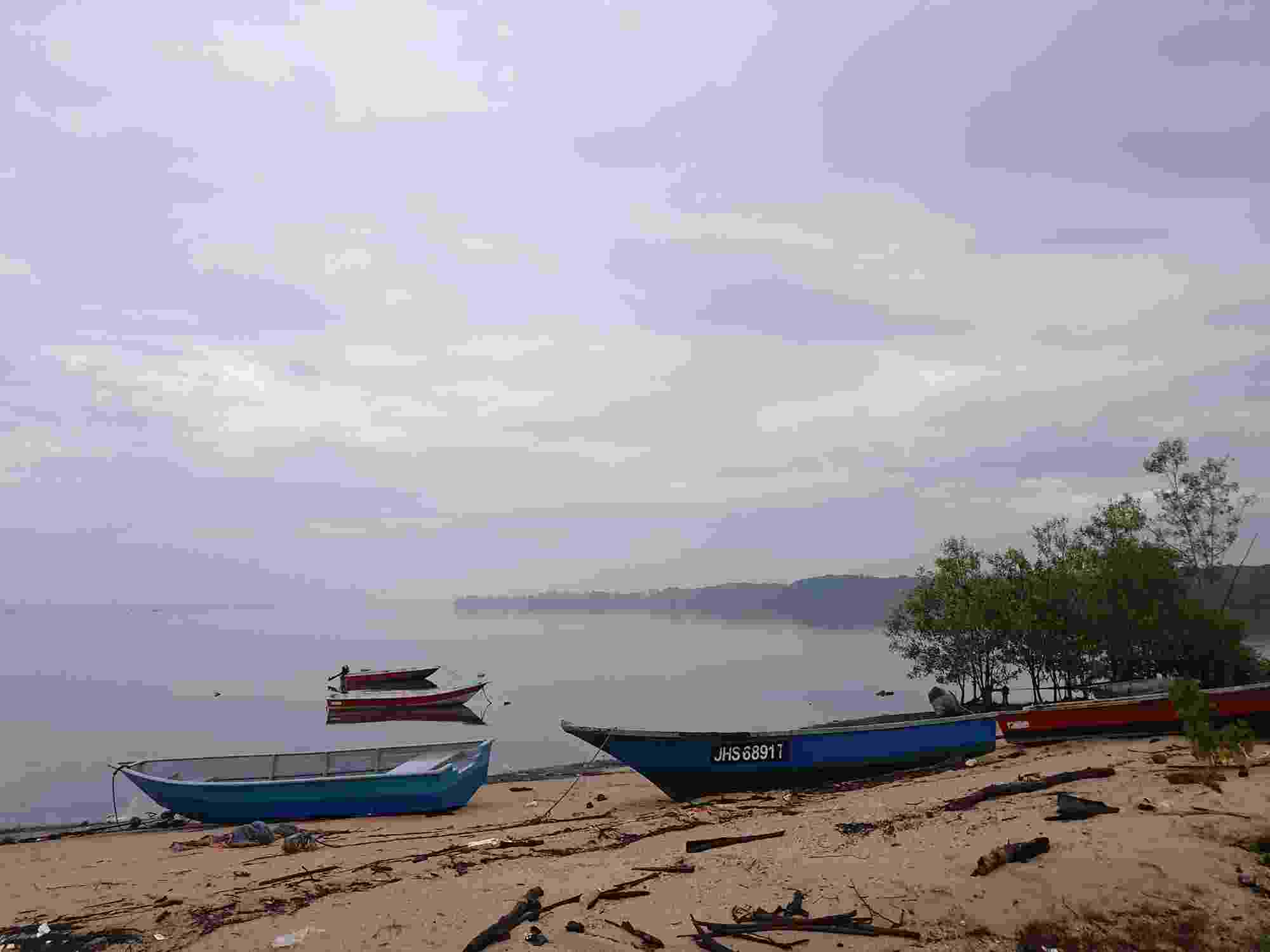Collaboratory update June 2021 | Malaysia
In Malaysia, Movement Control Orders (MCO) were reinstated in May 2021 due to the rise in COVID-19 cases, meaning the majority of our colleagues based there have returned to working from home.
01 June 2021


Penggeli River, a tributary of the Johor River
As a result of the MCOs research activities like site visits, and face-to-face meetings and workshops have not been possible. However, our Malaysia collaboratory team have become adept at using digital technology and have been busy hosting several events.
In February, the team held a virtual workshop to reconnect with and re-energise our project stakeholders. Hosted in Malay language, the team welcomed the Johor Water Regulation Body (BAKAJ), state Economic Planning Division (BPENJ), Department of Environment (DOE), National Water Services Commission (SPAN), Department of Drainage and Irrigation (DID), and other government agencies of various levels to the interactive workshop. After sharing the collaboratory’s latest progress, participants were divided into different groups to discuss several scenario simulations, and to address each agency’s functions and roles within the basin, identifying any gaps or overlap. The team reflected that the workshop was of great benefit, particularly regarding the Hub’s research on governance, as it permitted direct conversation with relevant agency representatives, strengthening relationships and helping our stakeholders to understand the Hub’s goals. The team is also liaising with the Johor Fisheries Department, with hopes to carry out a sampling visit to a commercial fishpond located in the basin.


Webinar - Water Quality Monitoring in Johor River Valley
Throughout February and March, the Malaysia collaboratory organised a series of webinars about their work in the Johor River Basin. Utilising the collaboratory’s Facebook page to broadcast live to a wider audience, key speakers from the Hub delivered webinars focused on key topics including: the challenges of integrated river basin management (IRBM) in Malaysia; and water quality monitoring in the Johor River Basin, including the Water Quality Index (WQI), and the timeline, causes, and factors for the pollution of the Johor River in 2013-2019. One of the webinars was led by renowned guest speaker Tn. Hj. Mohd. Riduan Md. Ali, Director of the Johor Water Regulation Body (BAKAJ). Sharing his valuable experience in water resource development planning in Johor, Mr Tn. Hj. Mohd Riduan also shared the realities and challenges of maintaining good water resource quality.


Rainfall data collection, Johor River Basin
Over the past few months our Malaysian colleagues have carried out sampling to determine the water quality of the Johor River and tributaries in both low flow and high flow conditions. More water quality sampling will take place to cover the wet and dry seasons, including drought risks, with plans for a citizen science programme underway to engage and involve the local public. Rain gauges have also been installed at four additional locations, alongside investigations into extreme rainfall trends and effects on water resources, and flooding within the basin. A database management system is also being developed to serve as an inventory of pollution sources, land use, water quality and quantity data, and other relevant information for the study area, to be used in scenario simulations and water quality modelling.


Fishing boats, Johor River
Development of a water value framework, with means to producing a literature review, is underway; to help better understand those values, a questionnaire on river and water-related behaviour in the basin has been produced, ready for pilot testing. Methods for identifying the total water demand in the Johor River Basin are under review, with plans to then project estimated demand on water resources up to the year 2050.
Finally, the Malaysia collaboratory team have secured funding for a case study based in the Johor River Basin, focused on the valuation of ecosystem services using contingent valuation.



